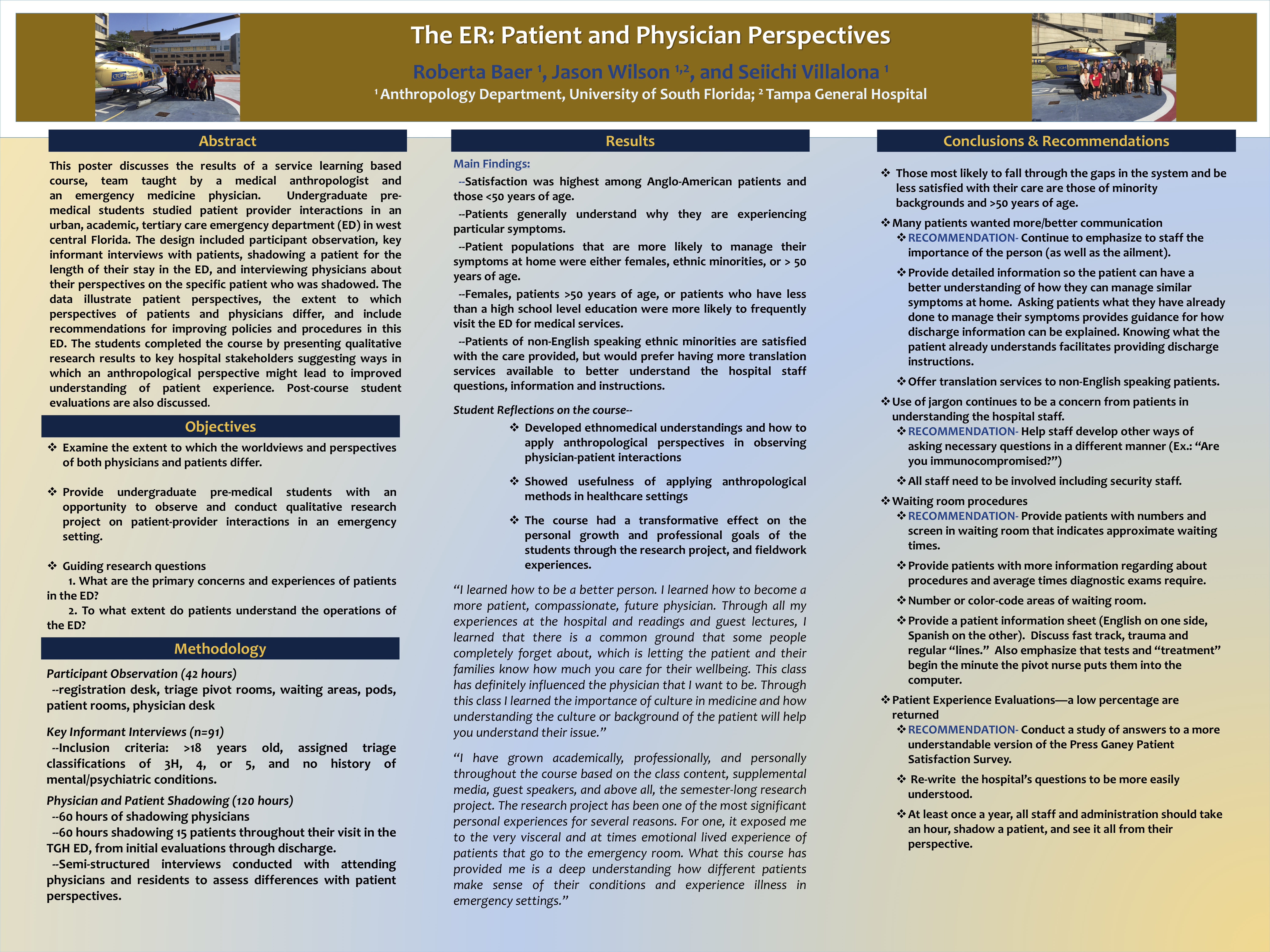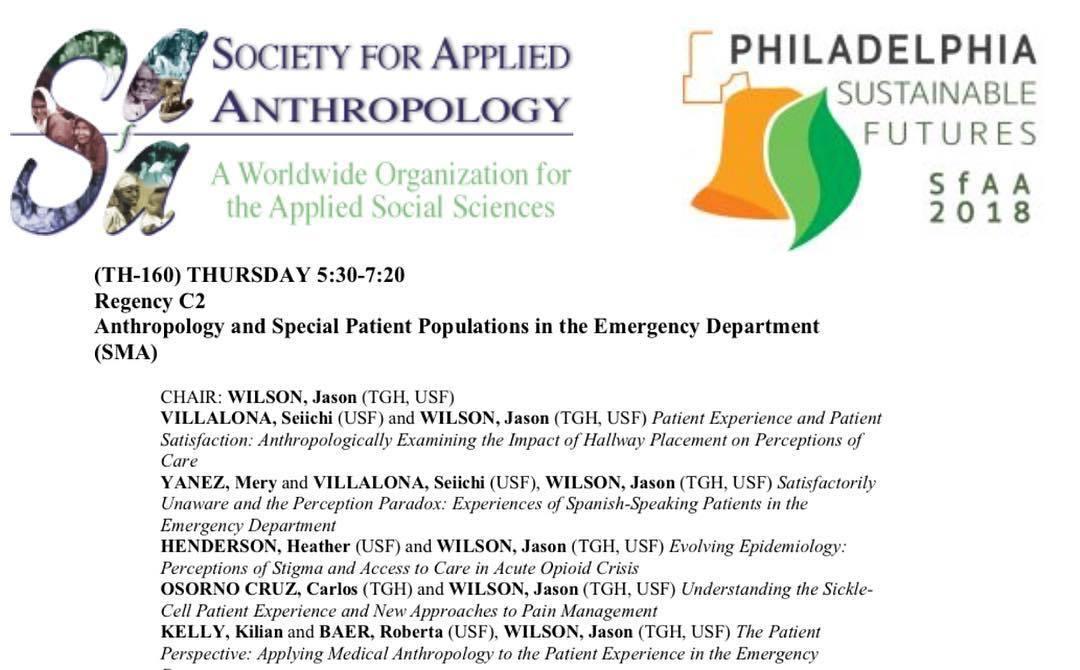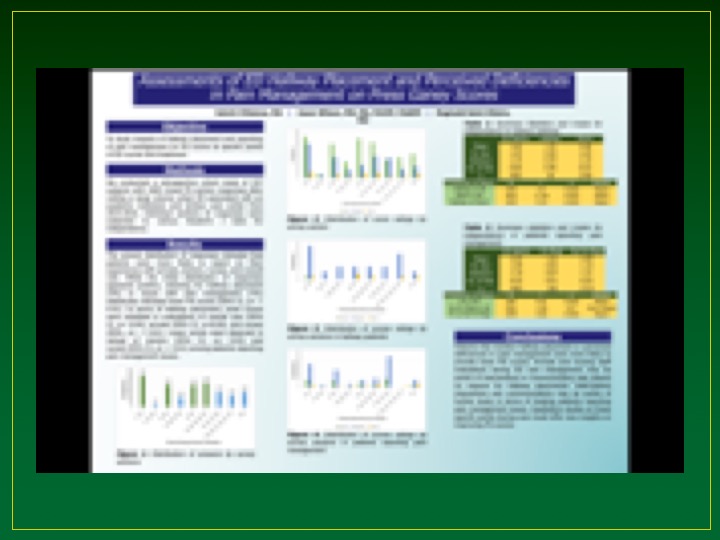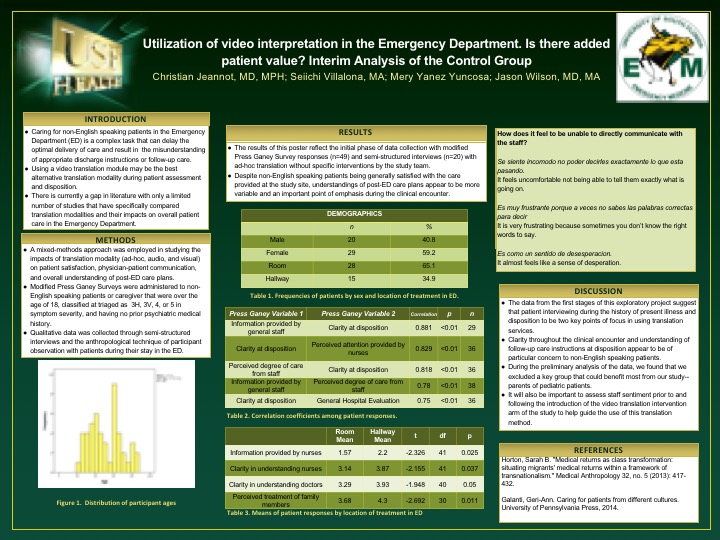RESEARCH EXPERIENCE IN PHYSICIAN-PATIENT INTERACTION
ANT 4930:008/IDH 4930:007
0930-1220 Friday January 2018 – April 2018
SOC 37/TGH ED
COMPLETE COURSE SYLLABUS AVAILABLE BY CLICKING HERE

INSTRUCTORS: Dr. Robbie Baer/Dr. Jason Wilson
OFFICE: SOC 138/TGH 2034K, ED Admin Area
OFFICE HRS: Wed. 1-2 and by appointment
PHONE: 813-974-0005/813-843-2110 (text or call)
EMAILS: Roberta Baer and Jason Wilson
GRAD ASSISTANT: Seiichi Villalona 862-686-7257

Every spring, I teach a course that focuses on patient-physician interactions. The course is co-taught with anthropologist Roberta Baer, PhD and the class “lives” in both the Department of Anthropology (ANT4930) and the Honors College (IDH4930). We utilize participant observation methods to answer questions that may not be addressed to traditional biomedical research surrounding the patient experience during engagement with the healthcare system and how gaps in expectations may limit healthcare outcomes.
The participant observation approach is a key technique of medical anthropologists. Our goal is for participant observation methods to allow enriched answers to research questions.
In addition, the class has competitive entry (we average approximately 100 applications for 20 spots) and now take both graduate students and undergraduate students into the course. Often, undergraduates stay on with Dr. Baer and/or Dr. Wilson to complete and honors thesis. In addition, graduate students working on MA and PhD work have also become an integral part of the ED research division secondary to relationships nurtured in this course.
Many of the students we accept into the course will go to medical school and have gone to medical school. This is one of the main variables we use to determine acceptance into the course. Our goal is that the education and focus on the patient experience that students receive in this course will form a lens that will exist for students throughout their training and their career, helping bridge the gap between disease and illness and, ultimately, to improve patient experiences.
Many hospitals and healthcare organizations struggle to improve patient experience and many institutions reach an asymptote level on experience score surveys. The value add of increased efforts to improve experience scores (i.e. Press Ganey, HCAPS) are costly and only associated with incremental gains. Perhaps that is because the methods used to improve experience scores cluster within a paradigm of improving physician communication based on perceived expectations of patients. Ideally, participant observation research that creates a distribution of expectations directly from patients and identifies those gaps from hundreds and hundreds of hours of time spent talking with physicians, patients and other healthcare staff will lead to insights that may help hospitals and providers break through flat barriers in experience score improvements.

Finally, all pre-medical students are told to “shadow” and “do research”. But what does this mean and how is this meaning interpreted by a nascent learner? Our goal is to create an engaged shadowing experience, aka participant observation. Specifically, students in our course spend time shadowing physicians, staff, the waiting room and even patients. In one of the most novel aspects of this course, students spend 4 hours with two different patients, following the patient and their family to tests, staying in the room during physician evaluation, nurse medication delivery and other staff interviews and interactions. Students often cite this as one of the most powerful experiences of their lives that they approach with fear and trepidation but complete with a sense of dual time pace movement (the time on the physician side moves quickly while sitting in the room, waiting for results, with no control, ticks slowly). When students complete the course, they will have essentially completed their requirements for shadowing and research as well as received a foundation in understanding the patient experience through the technique of participant observation.

The course has been so popular, and we have generated so much interest for students that want to stay on for further work, that we will now also offer a Fall Health Research Methods course, also taught by both Dr. Wilson and Dr. Baer. The course will be required for anyone that wants to do an honors thesis, MA, PhD dissertation with Dr. Wilson or Dr. Baer.


The existing spring course has been featured on the Anthro Alert Podcast and in the USF Magazine. In addition, the Society for Applied Anthropology (SfAA) will hold a special panel moderated by Dr. Wilson and Dr. Baer in Philadelphia in April 2018 with contributions during the sessions from prior course students. 


